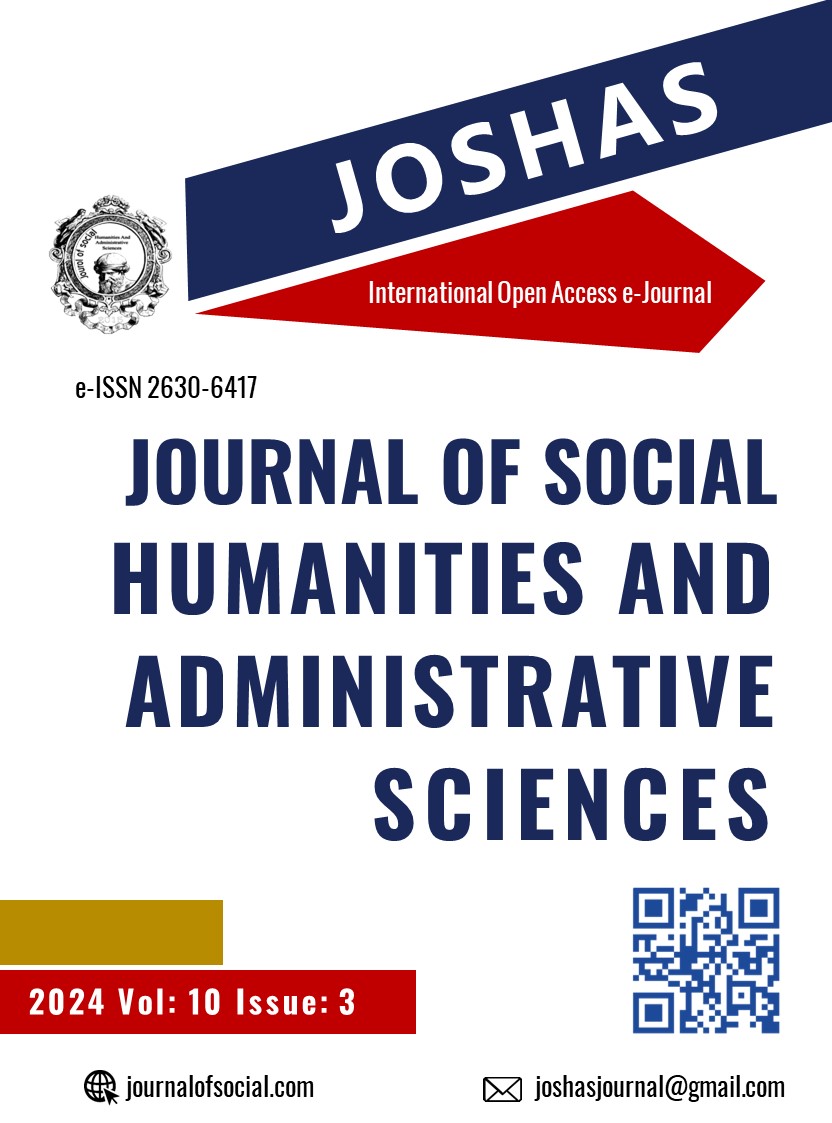Author :
Abstract
Bu makalenin konusunu örgütsüz orta sınıf Müslüman gençlerde tüketim ve din ilişkisi teşkil etmektedir. Çalışmada söz konusu geçlerin tüketim davranışlarında dinin yeri sorgulanmaktadır. Araştırmanın amacı örgütsüz orta sınıf Müslüman gençlerin tüketim davranışları ile dindarlık arasındaki ilişkiyi ortaya koymaktır. Makalenin söz konusu gençlerin gündelik yaşamlarında ve tüketim eylemlerinde dinin yerinin anlaşılmasına katkı sağlaması beklenmektedir. Çalışmada nitel yöntem benimsenmiştir. Araştırmanın evrenini Gaziantep ili merkez ilçelerinde yaşayan 20-35 yaş aralığındaki gençler, örneklemini ise bu kişilerden amaçlı örnekleme yöntemiyle ulaşılan 24 kişi oluşturmaktadır. Mülakat tekniği ile veriler elde edilip yorumlanmıştır. Makale gençlerce, nesnelerin kullanım değerinden öte onların etrafına oluşturulan anlam, değer, statü ve toplumsal onay dolayısıyla tüketildiği, dinin de çeşitli platformlarda bu çerçeve içerisine dâhil edildiği varsayıma yaslanmaktadır.
Tüketim toplumunda her şey tüketilebilirdir. Tüketim kültüründe dinin kendisi de tüketimin nesnesi olabilmektedir. Tüketim toplumunda nesneler sadece ihtiyaç ya da ekonomik değeri dolayısıyla kullanılmamaktadır. Çünkü tüketim eylemi aynı zamanda bir iletişim, öteki ile toplum ile bir konuşma biçimdir. Şeylerin sembolik değeri kullanım değerinin ötesine geçmiştir. Bu bağlamda din de değişik mecralarda kişinin kendisini ifade etmesine ve dikkat çekmesine aracılık edebilmektedir. Böylelikle din bireyi ve toplumu değiştirirken kendisi de ahlâkî sorumluluk ve eylem üreten bir referanstan ziyade diğer metalarla eşit bir statüye indirgenebilmekte ve tüketim kültürünün bir unsuruna dönüştürülebilmektedir.
Keywords
Abstract
The subject of this article is the relationship between consumption and religion among unorganised middle-class Muslim youth. In the study is questioned the place of religion in the consumption behaviour of the youth. The aim of the study is to identify the relationship between the consumption behaviour of unorganised youth and religiosity. It is expected that the article will contribute to understanding of the place of religion in young people's daily lives and consumption behaviour. The research method is qualitative. The population of the research consists of young people between the ages of 20-35 living in the central districts of Gaziantep province, and the sample consists of 24 people who were reached by purposive sampling method. The data were collected and interpreted using the interview technique. The article is based on the assumption that objects are consumed by young people for the meaning, value, status and social approval that is created around them, rather than for their utility value, and that religion is part of this framework on different platforms.
In the consumption society, everything is consumable. In consumption culture, religion itself can be an object of consumption. In the consumer society, objects are not used only because of their need or economic value. Because the act of consumption is also a form of communication, a conversation with the other and with society. The symbolic value of things has gone beyond their utility value. In this context, religion can also mediator a person's self-expression and attracting attention in different media. In this way, religion becomes an element of consumer culture, equated with other commodities, rather than a reference that transforms the individual and society, generating moral responsibility and action.





